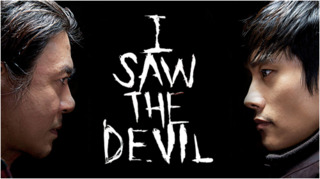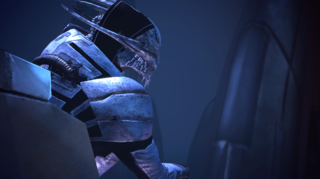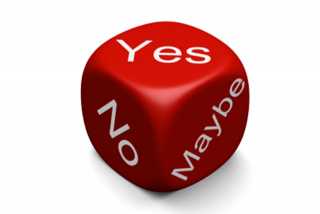The Grey Layers Of Morality And Choice
By Pezen 8 Comments

The concept of good vs evil is old and I would argue a dated way to view the world. Yet even so it's the most common source of subjective morality. Whatever we agree with is generally considered morally good. While things we disagree with are morally bad (evil). Most people don't accept the concept of a "subjective world", yet ironically that is all we can be. Which is why so many people will argue from a false sense of objectivity when all they're really doing is trying to convince other people of their subjectivity.
But this endless struggle of outlooks is what shapes the world around us and the ideas that gain traction in the zeitgeist and become forces of change. And this is also why there are no true forces of good and evil, because they're all just different views on reality. One man's hero is another man's tyrant. But this is all old news and everyone knows this on some level, but so many things in life hold more meaning to us than arbitrary philosophical hypothesis that makes life more complicated because we would all be too busy navel gazing than to look out for the lamp post ahead of us. And someone have to do the laundry.
But, let's spend a moment looking deep into our navels and apply that to video games.
With the release of inFamous: Second Son, I've read a lot about the so called "Morality System" of that game. Are you going to be good or are you going to be bad? A lot of games as of late put a lot of effort into making you a subject of this exercise. Some games will force you to apply some form of value judgement between yourself, your close ones and the rest of the world. Other games simply asks a binary question. But when all is said and done, how diverse are really these experiences?

When I first started playing Mass Effect several years ago, the concept of being a Paragon of hope in the universe seemed like a nice choice. When you're about to embark on a mission to save humanity and other forms of life in the galaxy, why would you do that while at the same time be a dick about it? I didn't play my Shepard a clean Paragon though, because he had been through some shit. So while he was a pretty easy going guy, he was still a no bullshit kind of guy.
Though the more that I played though that franchise, the more I realized that sticking pure Paragon was rewarded. Likewise, if I had been going pure Renegade I would have been rewarded. But life isn't that binary. So the whole illusion of shaping the game fell apart. I still will forever love that franchise for the overall handcraft of those games, it's story and the well realized characters. But as a means to explore morality, it's too binary and too pointless. Because the overall ramifications of the morality choices were too small. I mean, you never turned into Saren.
But if we create larger ramifications, will morality choices be more interesting?

One day I hear about a new franchise in the works based on a comic book called The Walking Dead, an adventure game in episodic format where choices matters and where the notion of choices with impact was a huge deal. I was excited, maybe someone has finally figured it out. I consumed every episode of the first season completely enthralled with the impacts of choice, the brutality at which the creators would drag the heroes through this journey. And no where in sight could you find a truly good choice, because everyone was doomed one way or the other.
As the season came to a close, I was super pleased with the time I had invested in the game. The ramifications of choices you made had killed people, and things were messed up. But the story felt ever so guided. Which is where a seed was planted for me. A seed that has been bothering me since.
Morality in games often amounts to nothing more than a hero being good or kind of a dick.

Let's face it, calling it morality choices is a fair bit of false advertising. Games like to claim that's what you're doing, but what you're really just doing is giving some little form of personality flair to your character. At the end of the day no matter if you're nice or being an asshole, you're still saving the galaxy. And if you're not saving the galaxy, your situation is usually so narrow in scope, that the bleak gray choices you have doesn't amount to much either because the narrator held all the cards and already decided your fate.
The problem I see with choice and morality in games comes down to the simple fact that no game I can recall actually give you the power to alter the outcome of your choices so dramatically that you actually end up being a horrible piece of shit at the end. In most situations, you'll end up a questionable hero at least. And maybe that's what troubles me, are we as collective humans so afraid of the other side that we need the overall goal of the game to be a good cause. A safe barrier to keep us from joining the emperor. Or maybe we just like to hide behind it. To justify the means of the mechanics.
Maybe this whole issue is just semantics, and we're all just making the issue bigger by our use of words like "morality". Because morality implies something more than just the choice of reducing collateral damage. But I sincerely hope that with the binary choice games and the diamond shaped choices in games as of late, we're getting to a point where somewhere in the future there will be more games that embraces a possible villain within our character. A game that let you truly become what you create by the choices you make and there is no predetermined end state, just an end point.

8 Comments